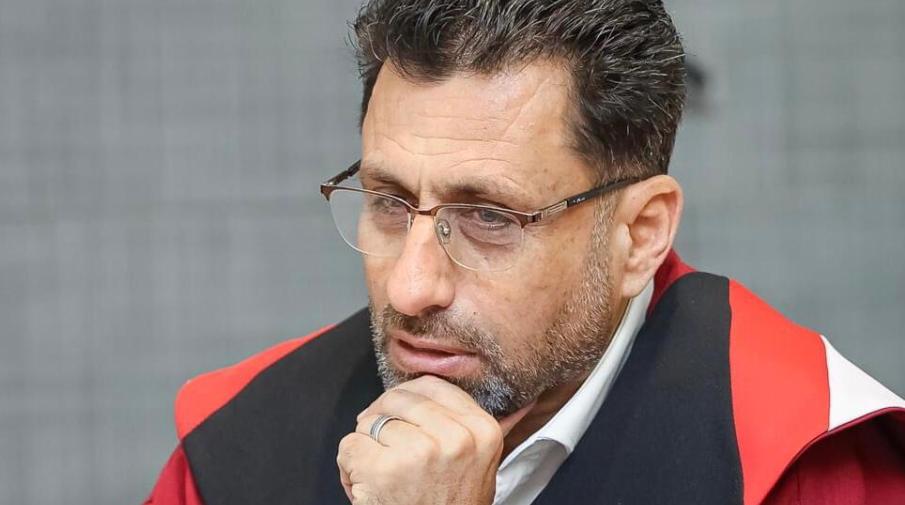Lights Break through Deep Darkness
The Arab American University continues to provide continuous academic contribution to one of the different aspects of our social life at times in which our great people are struggling for liberation and self-determination. Today, our contributions have culminated in an achievement by researcher Dr. Hussein Al-Ahmad, Professor of Media and Communication at the Faculty of Graduate Studies, who added to the theoretical contributions related to the basic concepts of the theory of “The Mediatization of Politics and Society” as a “metatheory” theory with a broad epistemological scope. It deals with media influences and their role in shaping the characteristics of contemporary human society. Our researcher has been working on developing a new theoretical model that was recently published by the British Research and Publishing Center “Intellect Discover” through a research paper in the “Journal of Arab and Islamic Media Research” in its second volume, the sixteenth issue, as a result of a study that took three years entitled:
A Middle Eastern Style of Mediatization of Politics and Conflicts:
Were Regional-Domestic Intersections Considered?
A Middle Eastern style of media politics and conflicts: Have the regional and local intersections been taken into account?
Dr. Hussein Al-Ahmad, Professor of Media and Communication at the Faculty of Graduate Studies.
The new model, “The Bargaining Power,” comes as a scientific contribution to the four theoretical models available through the efforts of media and communication scholars to explain media influences and their role in shaping the various features of human society, which are: the “Manufacturing Consent” model by Noam Chomsky and Samuel Herman (Chomsky & Herman 1988a). ); Jade Wolfsfeld's “Media Contest” model (Wolfsfeld, 2003); The “Media Culture” model by Douglas Kellner and Meenakshi Durham (Durham & Kellner, 2006), and the “Mediatization of Politics” model by Jasper Strömbäck (Strömbäck, 2014).
The new model represents a serious and successful experience by the researcher in interpreting satellite television news media coverage and its role in shaping the political culture and paths of the political process of Arab societies during the coverage of the conflicts that erupted in the region after the “Arab Spring” revolutions, taking the events of the Palestinian division as a case study. By adopting an inductive strategy in investigating the case, the researcher managed to provide empirical explanations that enabled him to precisely define his theoretical concepts and test his assumptions with reliable primary data. It also enabled him to overcome the theoretical shortcomings in the four models mentioned above, which stem in their origins from the contextual differences and complexities between the environment in which they were studied. The study includes a development of the four theories (Western democratic societies) and the operating environment of the satellite channels where the study was conducted (Middle Eastern societies).
In its analysis of the process of political communication during conflict coverage, the new model is based on the “logic of bargaining” between the logics of the media and politics, as it deals with it as an interaction that took place between the two variables of the “news value” provided by satellite journalism and the “need for funding” with which the political forces bargain in return, as the focus of a framework. Through the analysis, it became clear that it presented a new type of “systematic propaganda,” as a pattern that governs the mutual relations between satellite media institutions and political elites in the region. This relationship is made clear by the new model’s focus on analyzing the process of news framing events in satellite television journalism in a way that serves the interests of political forces, as an issue on which field scholars agree that it constitutes a basic input into the news production process, and a decisive determinant of how it affects the paths of conflict and the characteristics of the society in which it takes place.
The development of this theory constitutes an important contribution to the efforts of one of our academic staff in the Department of Media and Communication at the Faculty of Graduate Studies. The model has facilitated the analysis of satellite channels’ coverage of ongoing conflicts and their role in extending the political and ideological influences of the dominant political forces in the region through their journalism, to exert a strong influence on the paths of local politics in the erupting conflicts as well as in shaping its course and events, as a major problem that had not been solved before, and provided empirical evidence showing how the political reality in the “media world” differs from the “real world.” The new theoretical model also contributed by adding quality to the basic concepts of the theory of “The Mediatization of Politics and Society,” as a “metatheory” theory that broadly addresses media influences and their role in shaping the characteristics of contemporary human society.
to read the full article Click here.

